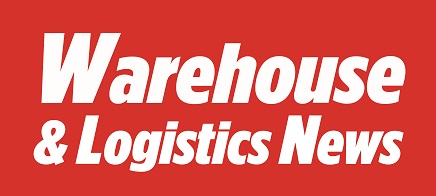Nigel Parkes, MD of Pallet-Track says ‘race to the bottom’ culture is not sustainable in global economy.
 As the managing director of one of the UK’s leading pallet network companies, I am continually perplexed by our national obsession with ‘Break Even Britain’ – the ‘race to the bottom’ culture where the cost of service cancels out any profit margin, or even pushes the service provider into an incremental loss over the period of the contract – because it simply does not stack up.
As the managing director of one of the UK’s leading pallet network companies, I am continually perplexed by our national obsession with ‘Break Even Britain’ – the ‘race to the bottom’ culture where the cost of service cancels out any profit margin, or even pushes the service provider into an incremental loss over the period of the contract – because it simply does not stack up.
The transport sector is a classic advocate of this ‘zero-margin’ approach as if making a profit is somehow a dirty word. Well, my view on this is well known: we simply cannot afford not to make a profit in a global economy where the driving forces are only squeezing one way. It is a little like a person ensnared in the coils of a hungry anaconda; the life-saving advice is not to breathe in because the snake only tightens its grip thereby preventing its victim breathing out. How many transport businesses continue to hold their breath and feel the squeeze as a result? The recent findings of the grocery ombudsman’s investigation into supplier payment practices highlighted the delayed settlement of invoices for up to two years in some instances, pushing many smaller and medium sized transport companies to the edge of bankruptcy. But in the real world many businesses are still working for large plcs in unequal, even abusive relationships which are simply not sustainable.
We are hearing noises from customers seeking reductions because of the downward spiral of fuel costs. This issue is likely to continue with Iran re-entering the fuel market after sitting on 500 million barrels of crude oil while international sanctions were in place. Likewise, Saudi Arabia has refused to cut production of oil during the downturn, so we, and many others, will certainly be asked to sharpen our pencil on rates.
We were the first network to announce an increase to our rates last year, not because we wanted to, but because we had to. The fact of the matter is that while the price of fuel falls (but its volatility as a world commodity means that the price will rise again) the cost of everything else transport related has increased.
Insurance tax has risen from 6% to 9.5%. In the last two years, the introduction of Euro 6 vehicles means vehicle costs of 44 tonne trucks has risen from anywhere between £8 and £12k, dependent upon the manufacturer.
The introduction of the auto enrolment (pension scheme) starting at 1% and moving to 3% by the end of 2016 (there are different timelines for size businesses on this), and most significantly, the increase in driver wages has risen in some cases up to 25% in the past 15 months.
However, despite an attractive salary, the average age of a haulage driver is 53 – an age akin only to that of a crossing patrol warden or a member of the clergy, according to a recent poll.
I’m aware in one instance of a transport company who despite a saving of £600,000 on fuel costs last year saw a total additional spend of more than £700,000 simply to stay on the road, which, of course, meant they were actually £100k worse off.
There needs to be a reasonable profit margin to be able to reinvest into the business so companies can innovate and introduce new added value services rather than this continual, zero-margin, bargain Britain approach where there is little or no wriggle room.
Announcements of multi-million pound contracts always look attractive in the pages of the transport press but the narrow margins mean there is little or no profit to be made in the deal. Indeed, I have said it before, but it is worth repeating, it would be cheaper to walk away from the contract than lose money on each pallet just because there is guaranteed volume work there.
As an industry we should stand firm and not give in to calls for rate cuts. Indeed, we should be offering better service and boosting the morale of a sector running on empty. It also bears repeating that we should all turn down the talk of volumes and focus upon increasing the margins in order to drive value through the supply chain by filtering out the profitable form the non-profitable clients and walking away from so-called ‘Break even Britain’ like tenders that are more like ‘break point’ contracts because they cost more money than they will ever take in.




Comments are closed.